 Illustration by
Noopur Choksi
Illustration by
Noopur Choksi
It’s something of an inside joke in Portugal that the country’s culture is basically about three things: fado, football, and Fátima. That was certainly true during the 48 years of António Salazar’s dictatorship, when it was next to impossible for anyone living in Portugal to get their hands on rock music from abroad. National rock wasn’t exactly forbidden, but it was frowned upon; government-sanctioned music was either fado or bubblegum pop about traditional national values, known as nacional cançonetismo.
Still, the roots of the Portuguese DIY scene began during that same period of time. Despite the fact that venues were virtually nonexistent, bands like Gatos Negros and Joaquim Costa still found a way to play shows, often with the help of local friends. That DIY ethic continued into the early ‘90s. But where in the past it arose out of necessity, the approach in later decades was much more deliberate. “In the ’80s, there was DIY stuff around, but it was mainly an unconscious act by people doing their things,” says Luís Futre, an early pioneer of the national DIY scene and founder of Milkshake Records, the label that released the landmark Portuguese DIY comp Supermarket Music. “In the early ‘90s, DIY was a decision. A lot of this was very much because of Elsa of the Bee Keeper label, who found a way to record pretty much every indie band. She went all in—from the recording to the artwork to the music.”
Instead of waiting around for labels and promoters, the artists in the Portuguese music community began taking the reins. They launched local tours by creating an intercity network of clubs and promoters; they handled their own recordings and album art. The work done on an independent level throughout the county in the ‘90s became a stepping stone for the artists and labels that followed. Local venues like the Ritz, Passos Manuel, and Kaza Enkantada—a Lisbon squat that lasted for 10 years—became laboratories that led to the creation of important bands and collectives like Paus or Xinobi. The arrival of the internet made it easier for bands to find an audience. And while there is now a more traditional infrastructure to support artists in Portugal, the DIY scene remains as active and healthy as ever. Here are just a few of the leading lights.
Systemik Violence
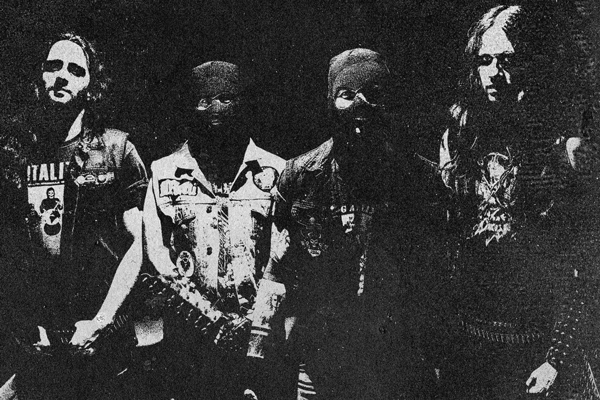
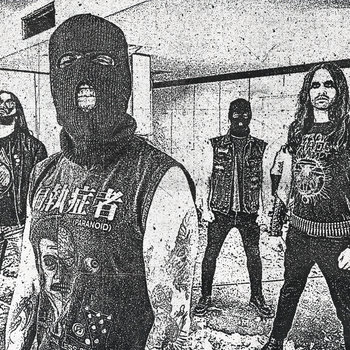

Systemik Violence are heavy, fierce, and very pissed off. Equally influenced by proto-metal bands, J-Core, and Scandi-crust, the group slam all of those styles together to make music that is unrivaled in its brutality. But for all their ferocity, the group have a sense of humor; sample song titles include “Crapitalismo,” “You Give Punk a Bad Name,” and “Male Dumbinance,” the latter of which ends with the command: “Sexist punks, fuck off!” Systemik Violence feel punk has “gone soft,” and have taken it as their mission to harass, shock, and antagonize it back to life. From the sound of the songs on this EP, they’re already well on their way.
Vaiapraia


Vaiapraia are from Setubal, a fishing village on the Portuguese coast that is historically very traditional. But “traditional” Vaiapraia aren’t. The group mix garage with moody alt-rock to create songs that feel dark and brooding. Vocalist Rodrigo sounds like he’s singing off-the-beat on purpose, giving the music a feeling of unpredictability. Lyrically, the band address everything from Rodrigo’s queerness and his struggles with bipolar disorder to jokey references to popular films.
Black Bombaim


Black Bombaim play instrumental psych rock, with songs that typically stretch out well past the 10-minute mark. Over the last five years, the group has expanded their palette of sounds, recording with free jazz guru Peter Brötzmann for an album that blends rock’s drive with the wildness of avant-garde music. They’ve also collaborated with Luís Fernandes from the krautrock-y Peixe:Avião and Jonathan Saldanha of the doomy experimental band HHY & The Maccumbas.
Pega Monstro


Pega Monstro is the Portuguese name of a popular toy that was essentially a sticky piece of rubber with a long tail. Pega Monstro is also the name of a band comprised of sisters Julia and Maria Reis, who write rock songs that range from dreampop bliss to ragged punk fury. The group’s keen ear for melody recently attracted the attention of the U.K. label Upset the Rhythm, who added the band to a roster that includes internationally known acts like Deerhoof and No Age.
O Gajo
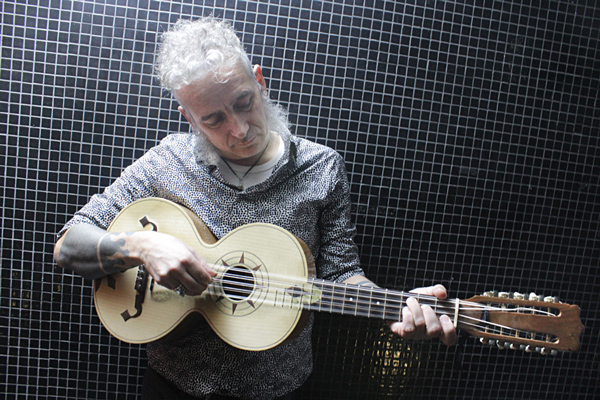
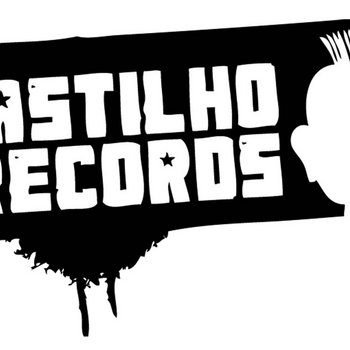


Compact Disc (CD)

João Morais may play acoustic guitar, but by no means is he a folk musician. In fact, it’s not even really an acoustic guitar—it’s a traditional Portuguese instrument called viola campaniça. Morais’s musical background comes from playing in punk bands like the influential Corrosão Caótica, but this project is a long ways off from his early days. The music is haunting, magical, and beautiful with titles that seem to reference hidden parts of Lisbon. In them, you can find out which bar has the best Ginja, and meet characters like the blind man with the guitar, or the female pickpocket.
Ninaz



With Ninaz, it’s hard to say where garage rock ends and power pop begins. Over a wall of distortion, frontwoman Joana Peres sings about living on the beach, laziness, and being sick. The group is signed to Xita Records, a group of Lisbon friends who have been releasing interesting local music for the last four years, including artists like Duquesa or Primeira Dama. The lyrics to Bates Forte Cá Dentro are recoded in the group’s native tongue, which gives them a meter and rhythm entirely different from Western groups of a similar ilk. Musically, the group swings from No Joy-like noise to sugary guitar pop in the blink of an eye.
Clockwork Boys


No shits given by these guys: Clockwork Boys play the way you’d expect a band inspired by both punk rock and A Clockwork Orange to play. In other words, they’re all about chaos, mayhem, and disorder, and that’s reflected in their raucous songs. Grimy, loud, and obnoxious. What more could you ask for?
Bruxas/Cobras
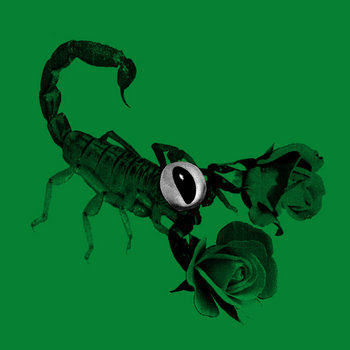

At this point, Ricardo Martins has been in more bands than it’s possible to keep track of. For Bruxas/Cobras, he teamed up with Pedro Lourenço of the historic experimental music band Sei Miguel. They play music that’s similar to math rock, but also find room for surf guitar and Lightning Bolt-style noise jams. The breadth of sounds makes sense: both Martins and Lourenço have played with a host of different musicians over the course of their long careers. For Martins, the important thing about Bruxas/Cobras is “just wanting to make things happen, without waiting around for others to do it.” That same sense of urgency is apparent in their music.
Filii Nigrantium Infernalium
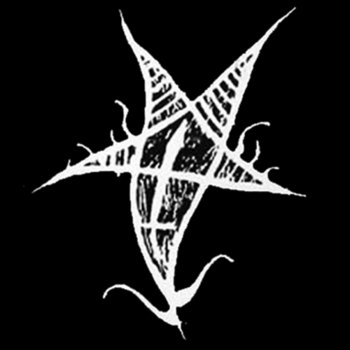

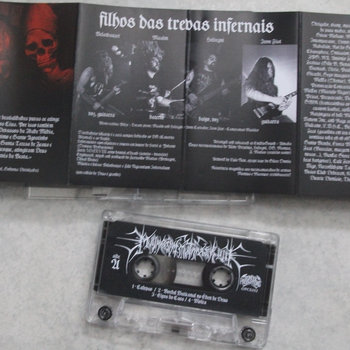

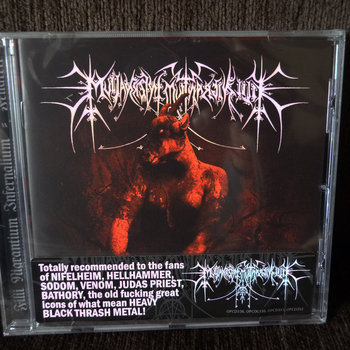

Vinyl LP, Cassette, Compact Disc (CD)




Filii Nigrantium Infernalium may not have the catchiest band name, but at this point, they don’t need to. The group has been around since the late ‘80s, playing black metal spiked with elements of power metal and thrash. Politically, the group is hard left, attacking xenophobia, homophobia, and misogyny with gusto.
Conan Osiris


As of this writing, Conan Osiris is on his way to Tel Aviv to participate as Portugal’s representative in the 2019 Eurovision Song Contest. He’s a favorite to win, and the songs on Adoro Bolos make it easy to see why. There’s a whimsy and eccentricity to his music: some of them sound like an IDM group collaborating with a fado singer, others are delightfully warped takes on art rock. All of them are driven by Osiris’s warm voice and skewed sense of humor.







